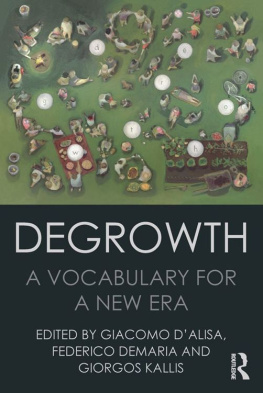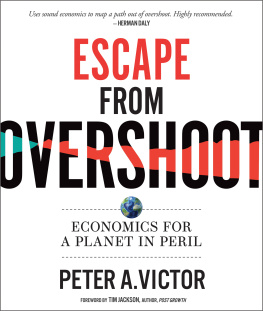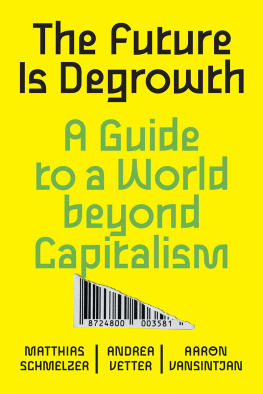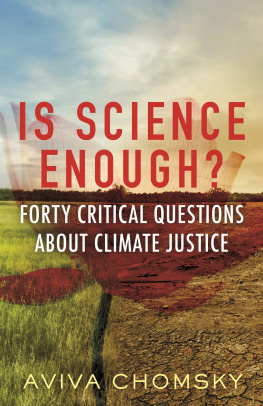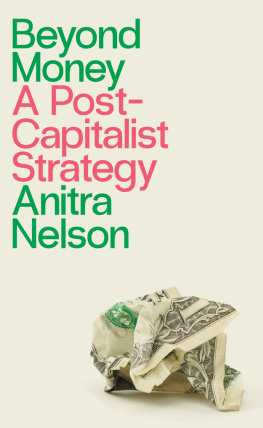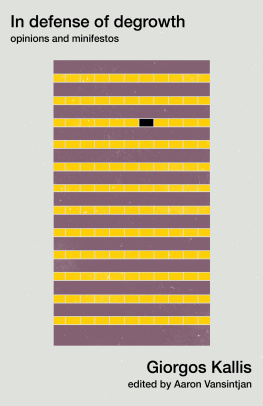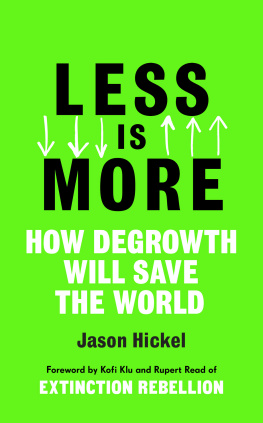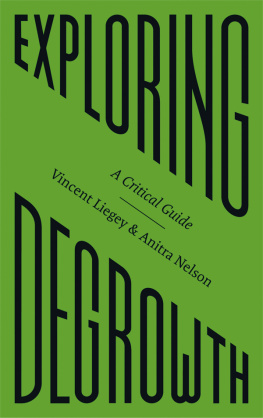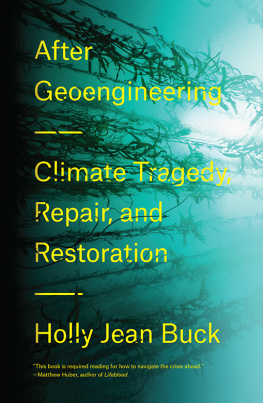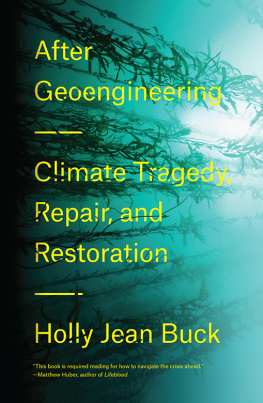DEGROWTH
Degrowth is a rejection of the illusion of growth and a call to repoliticize the public debate colonized by the idiom of economism. It is a project advocating the democratically-led shrinking of production and consumption with the aim of achieving social justice and ecological sustainability.
This overview of degrowth offers a comprehensive coverage of the main topics and major challenges of degrowth in a succinct, simple and accessible manner. In addition, it offers a set of keywords useful for intervening in current political debates and for bringing about concrete degrowth-inspired proposals at different levels [en] local, national and global.
The result is the most comprehensive coverage of the topic of degrowth in English and serves as the definitive international reference.
Giacomo DAlisa is Research Fellow at the Autonomous University of Barcelona, Spain.
Federico Demaria is a PhD candidate at the Autonomous University of Barcelona, Spain.
Giorgos Kallis is Professor at the Autonomous University of Barcelona, Spain.
The three editors are members of Research & Degrowth, www.degrowth.org
More information at: vocabulary.degrowth.org
PRAISE FOR THE BOOK
This book is an excellent introduction to the politics of degrowth in its different meanings and dimensions that are analyzed and catalogued in dozens of entries providing an indispensable point of reference for anyone interested in joining the debates surrounding this perspective. It is also an eye-opener to the evolution of the concept. For as the editors introduction demonstrates, degrowth for many signifies a variety of initiatives [en] time banks, local currencies, urban gardens, solidarity economies [en] proposing an alternative to capitalist accumulation and the reconstruction of our reproduction on more cooperative terms. This then is a volume that those committed to building non-exploitative relations will need to consult as it offers a map to the world of alternatives to capitalisms.
Silvia Federici, Emeritus Professor at Hofstra University, New York
At a time in history when political, economic and intellectual leaders assure us that nothing fundamental can any longer be questioned, nothing could be more important than the movement of thought, and of action that this volume on Degrowth represents. It raises the prospect of finally ejecting the twin demons of productivism and consumerism that are responsible for so many historical failures of the left as well as the right, and begins to set about the real work of imagining and building a society ft for human beings to live in.
David Graeber, Professor of Anthropology, London School of Economics, London
This book is one of the most thorough and insightful presentations and discussion of economic theory and practice in the field of de-growth economics, a revolutionary attempt to understand the economy as if humans and Nature matter.
Manuel Castells, Professor Emeritus of City And Regional Planning, University of California, Berkeley
A thought-provoking, wide-ranging, spirited, and deeply original analysis; this book is a must-read on degrowth debates.
Karen Bakker Professor and Canada Research Chair Director, Program on Water Governance, University of British Columbia, Vancouver.
Degrowth takes the false coin of economic growth via capital accumulation and confronts it head on: There is no wealth but life and to protect life on the planet and to ensure the future for all it is necessary to exit the current system of production. This is the essential message for our time.
John Bellamy Foster, Professor of Sociology at the University of Oregon, Eugene
Breaking away from myths has always been difficult But this is the spirit of the contributions of this book which ask: will it be possible to escape from the monster of growth? The answer is simple. It is is not only possible, but indispensable. But is also not sufficient. We also need to think new utopias to orient us. And these one can find in this book Those utopias imply a critique of perverse reality as well as the patient construction in solidarity of new and diverse options. Alternatives imagined collectively and implemented democratically
Alberto Acosta, Professor of Economics, FLACSO University and ex-President of the National Constitutional Assembly of Ecuador
We really need to develop a vocabulary for a new era, and this timely book takes us a great step forward by providing an impressive collection of concepts and ideas related to the degrowth debate. It is a very useful resource for both newcomers and seasoned participants. Everyone can find inspiration and new links between ideas by following ones own personal track through the entries it is a pleasure.
Inge Rpke, Professor of Ecological Economics Aalborg University, Copenhagen
This volume is indispensable for anybody interested in moving beyond mere retrofit solutions to the most important economic and ecological conundrums of our time. This book helps bury several oxymoron-constructs masquerading as solutions to the human predicament. It achieves this by landing definitive intellectual and political blows to both the desirability and possibility of unfettered economic growth as a panacea for all ills.
Deepak Malghan, Professor of Ecological Economics at Indian Institute of Management, Bangalore
What a splendid vocabulary! A range of international authors brilliantly surveys the emerging field of an economics which bids farewell to the obsession of growth. The entries are compact yet eloquent, learned yet action-oriented. In the new style of economic thought, ideas like sharing, frugality, debt-free money, dematerialization, and digital commons play a leading role. Whoever wants to know more about an economy of permanence for the 21th century should reach for this book.
Wolfgang Sachs, Professor of Social Science at the Wuppertal Institute, Berlin
This collection is an invaluable source of knowledge and inspiration for anyone interested academically or politically in alternative ways of thinking and acting about the environment and development. The collection is of interest to economists, political scientists, ecologists, geographers, planners, environmentalists, activists, development scholars, anthropologists, policy makers, and to anyone who wishes to think and act in ways that transcend the current environmental and economic impasse.
Maria Kaika, Professor in Human Geography, University of Manchester, Manchester
Degrowth thinking is a strategic meeting place for many trends in contemporary environmental politics, and this encyclopaedic compendium, at once widely accessible and deeply informative, will be invaluable in advancing the work of both academics and activists committed to building eco-sufficiency and global justice.
Ariel Salleh, Professor of Social Science at Friedrich Schiller University, Jena
Degrowth is more than just an idea: it is a dream. Born in the 1970s, this recurrent, collective dream has survived the neo-liberal hegemony and as this book convincingly shows has gone more political (and more feminist) through collective thinking and social practices. Like it or not, this persistence of the concept must be recognized, and credit given to its capacity of spurring new debates and new forms of social mobilization, appealing to all those who continue to see growth as a false solution to social problems and a true disaster for the environment.
Stefania Barca, Environmental Historian at University of Coimbra, Coimbra
Degrowth illuminates diverse concepts for clear thinking, provides us with new languages for political discourse, and outlines the many steps we can take to recreate our economy, our lives, and our relations to planet Earth. Call it what you want: happiness, living within limits, community, real democracy Degrowth both calls and empowers us to bold action.
Richard Norgaard, Professor Emeritus of Energy and Resources, University of California, Berkeley
Next page
